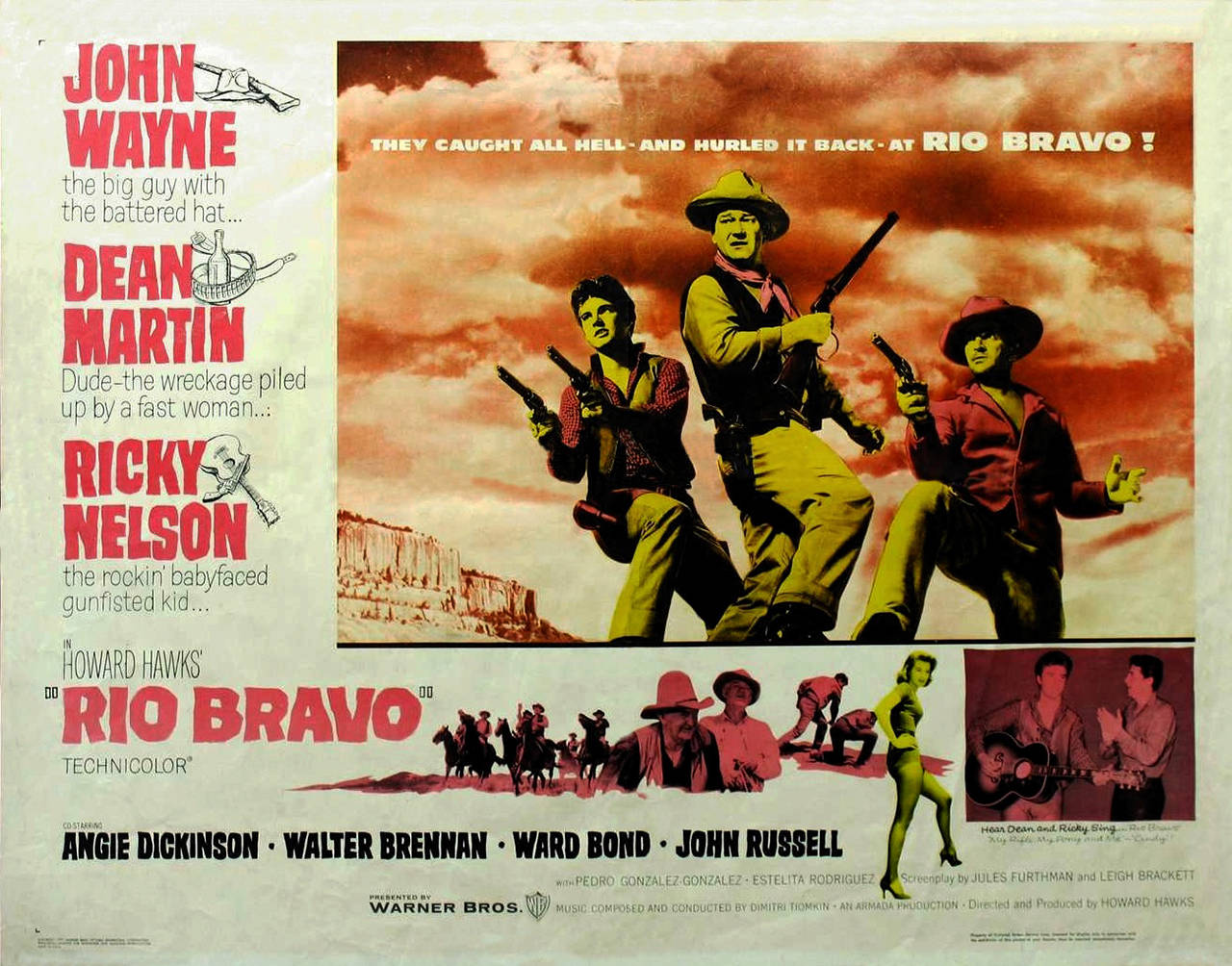You’d never know by watching it, but “Rio Bravo” was designed as something of a message movie.
Producer-director Howard Hawks and star John Wayne disliked two acclaimed Westerns of the 1950s, “High Noon” and the original “3:10 to Yuma.” In both films, lawmen actively sought help from outsiders, which Hawks and Wayne believe painted a false picture of law enforcement in the Old West. With “Rio Bravo,” they intended to set the record straight by making a strong, self-sufficient lawman the hero.
While “High Noon” and “3:10 to Yuma” are great movies, “Rio Bravo” is equally entertaining — a film that overcame unorthodox casting and one of the greatest out-of-left-field scenes in cinematic history to become a classic of the genre.
The 1959 Western will be shown Saturday and Sunday in Hoquiam, as part of the 7th Street Theatre’s Silver Screen Classic series.
Wayne stars as John T. Chance, the sheriff of a small Texas town. At the end of a very effective dialogue-free opening sequence, he arrests Joe Burdette (Claude Akins) for killing an unarmed man (Kurt Russell’s real-life father, Bing, in an uncredited cameo).
The murder charge predictably doesn’t sit well with Joe’s brother Nathan (John Russell), a powerful but corrupt rancher who seals off the town and attempts to intimidate the sheriff into releasing his sibling.
While resisting pressure from the Burdettes, Chance also rejects offers of assistance from what he describes as “well-meaning amateurs” — civilians with little experience in handling a gun.
When another killing forces the sheriff to mobilize his forces, the “professionals” he selects include the alcoholic deputy, Dude (Dean Martin); the aging, gimpy jailer; Stumpy (Walter Brennan); and the young hired gun, Colorado (Ricky Nelson).
There are those who, forced to entrust their lives to three men, might choose people other than Martin, Nelson and Brennan. But, as was usually the case on screen, the Duke knew what he was doing.
A subplot involves Chance’s burgeoning relationship with a professional gambler named Feathers (Angie Dickinson), a woman he originally plans to run out of town but eventually learns to embrace, both figuratively and literally.
Dickinson plays a variation of a frequent character in Hawks-directed movies: a loquacious, sexually aggressive woman who takes the lead in romantic encounters with the male lead. Sometimes this characterization works (as in Hawks’ collaborations with Lauren Bacall and Humphrey Bogart, “To Have and Have Not” and “The Big Sleep”) and sometimes it doesn’t.
This time it does, despite the 24-year age difference between the co-stars. Confident in her sexuality and amused that her boldness unsettles the sheriff, Dickinson delivers her best-ever screen performance.
The same could be said for Martin. Casting Dino as a drunk doesn’t sound like much of a stretch, but this isn’t the lovable tippler from television’s celebrity roasts of the 1970s. Here he is frequently pathetic, particularly in the opening scene in which he is willing to reach into a spittoon for enough money to buy a drink. Hawks may have been the only director who fully tapped Martin’s acting potential.
The role of an authoritative, clear-thinking lawman fits Wayne like a glove. As the toothless, cantankerous Stumpy, Brennan upholds his reputation as one of Hollywood’s greatest scene-stealers. He also contributes heavily to the surprising amount of humor in a film with serious overtones.
“Rio Bravo” may not be the best Western ever made, but it might be the most fun to watch. That even applies to a wildly inappropriate late scene that somehow works. Holed up in the jailhouse waiting for the Burdette gang to attack, Dude and Colorado suddenly break into song, performing a pair of duets.
This scene was not in the original screenplay. Hawks added it after casting Martin and Nelson, reasoning that audiences wanted to hear two of the era’s most popular singers do their stuff. Extraneous as it is to the central story, this musical interlude generally passed muster with most influential critics.
Wayne and Hawks liked “Rio Bravo” so much that they essentially remade it twice.
The 1969 Western “El Dorado,” with Robert Mitchum in the Martin role, a young James Caan as a livelier variation of Nelson’s character and television actor Christopher George as an unusually principled villain, is almost as good as the original. But the star and director went to the well once too often with “Rio Lobo” three years later in what would be Hawks’ final film.
Perhaps “Rio Lobo” might have benefited from a sing-along.
* * *
“Rio Lobo” is playing Saturday at 7:30 p.m. and Sunday at 2 p.m. at the 7th Street Theatre in Hoquiam. Tickets are $6.



